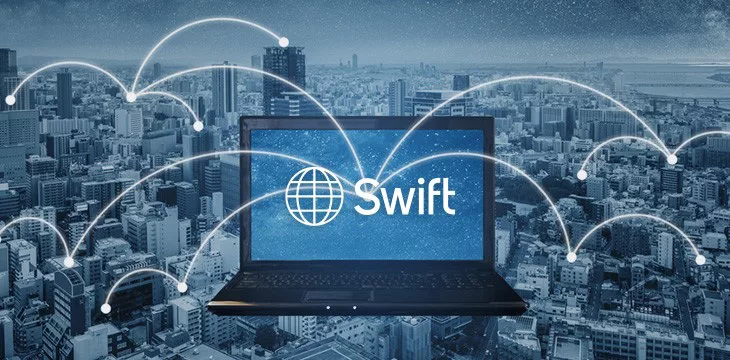
|
Getting your Trinity Audio player ready... |
Society for Worldwide Interbank Financial Telecommunications (Swift) has announced the completion of a second Proof-of-Concept (PoC) for electronic bill of lading (eBL) solutions.
Swift confirmed the success of its experiments in partnership with BNY Mellon, Deutsche Bank (NASDAQ: DB), and four other eBL platforms, as stated via official disclosure. The central theme of Swift’s PoC revolved around achieving interoperability among existing eBL platforms, designed to trigger industry-wide adoption.
Bills of lading are documents used to represent cargo ownership in transit, with nearly 98% of existing documents being paper-based. Several studies have suggested that a pivot to electronic-based bills of lading can save over $6 billion, adding a chunk to the value of global trade. Critics, however, noted that paper-based bills of lading are prone to forgery, prompting a push for industry-wide digitization.
To solve the interoperability debacle, Swift suggests that banks can rely on their existing payment connections to adopt a single API that will support interbank transfers of bills of lading. In early 2023, Swift tested its approach in a detailed PoC involving edoxOnline and CargoX, using a “single ubiquitous API contract.”
“Standards set with the industry – combined with global interoperability facilitated by Swift – can enable eBL providers and digital trade platforms to seamlessly interact with banks, corporates, and the wider trade ecosystem,” said Shirish Wadivkar, Global Head of Wholesale Payments and Trade Strategy.
The international payments solution revealed in a statement that its eBL solution will provide the “high security, legal, and compliance standards” financial institutions require to facilitate trades. Wadivkar expressed confidence in the solution’s ability to stifle fraud incidents. At the same time, other experts suggest using blockchain technology as an added security layer.
Prepping for a full-scale rollout
Swift says that despite its solution’s wide range of benefits, the product still needs to be ready for a mainstream launch. The organization shares it will increase its collaborative work, engaging with members and other industry stakeholders to map out ecosystem-wide standards and legal interoperability.
“As the numbers of issued eBLs increase from day-to-day, we see significant value in exploring solutions with Swift that would provide banks with easier access to electronic trade documents exchanged on the different eBL platforms,” said Boaz Lessem, Chief Legal, Regulation and Partnerships at WaveBL.
Watch Centi: Bridging digital money and traditional banking
Recommended for you
Lorem ipsum odor amet, consectetuer adipiscing elit. Elit torquent maximus natoque viverra cursus maximus felis. Auctor commodo aliquet himenaeos fermentum
Lorem ipsum odor amet, consectetuer adipiscing elit. Accumsan mi at at semper libero pretium justo. Dictum parturient conubia turpis interdum

 11-21-2024
11-21-2024


